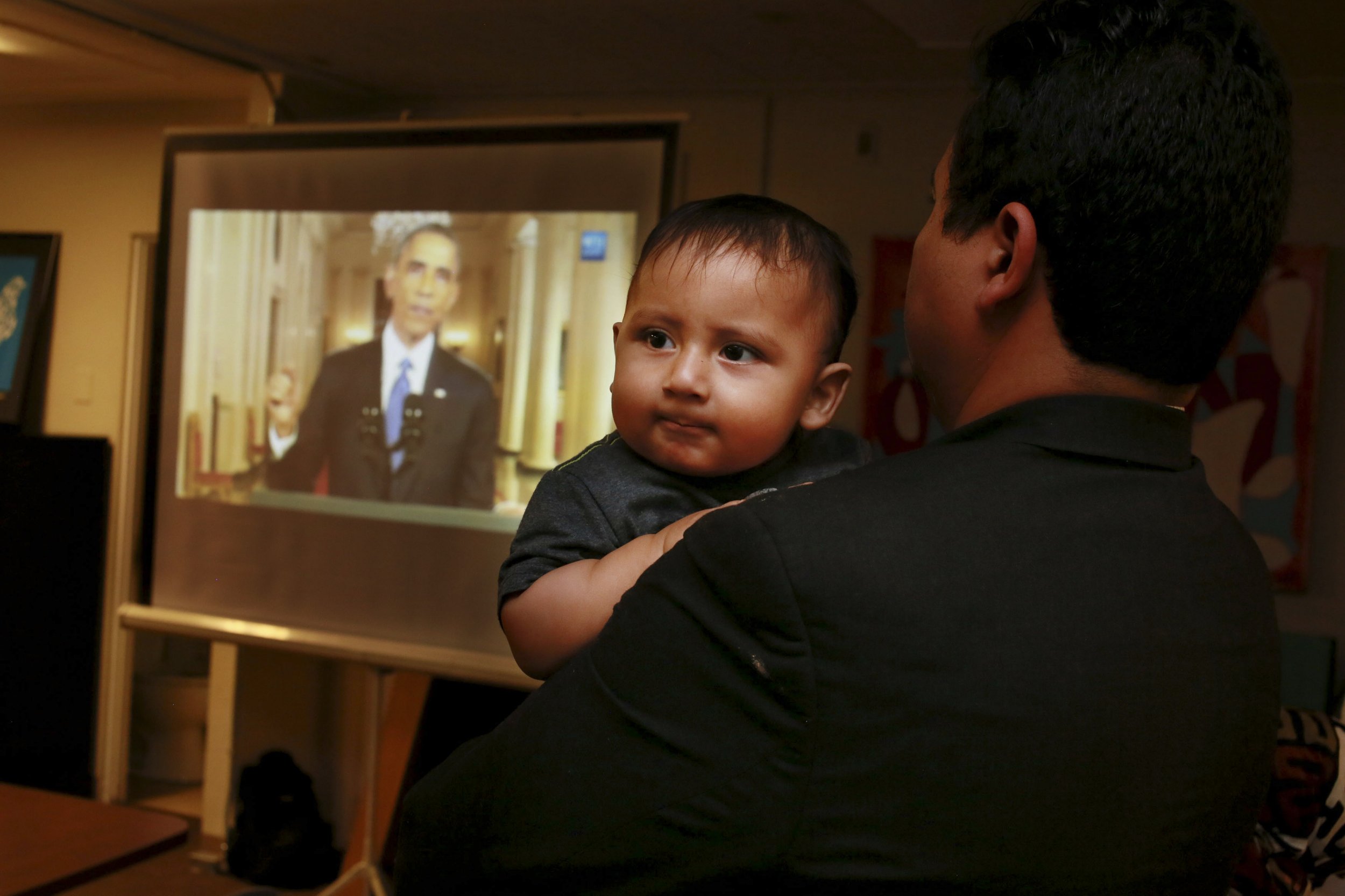
President Obama has laid out his immigration executive order. He's delivered his webcast announcing his speech. He's delivered his primetime speech and, on Friday, he flies to Las Vegas to give another speech and sign the order. It's a journey just to get it out the door.
So now what? We don't know what the political fallout or policy fallout will be from the speech. But here are a few things worth asking as we go forward:
- Do undocumented immigrants sign up? The Obama plan calls for undocumented immigrants to sign up to get their temporary legal status. But will they? They'd have every incentive to. After all, it would mean not worrying about the knock at the door. But there's no guarantee that they will after having lived in the shadows—to use that oft used phrase—for so long. In other words, we can't be sure what the effect will be on those who are being offered what Obama called "this deal."Right now, there aren't mass deportations of the majority of the undocumented, so some may ask why they should come forward now—especially if a new president in 26 months rips up the Obama order. Legislation and human behavior have a way of being unpredictable and it's entirely possible fewer immigrants take advantage of these new policies precisely because they are executive orders.
- Does the court case go anywhere? Republicans are vowing legal challenges to an order they've called impeachable, Caesar-like, and imperial. Maybe the courts will take up their challenges quickly but that hardly seems certain. And if they do take the case would they really rule against the president?The Supreme Court has rebuked Obama before, unanimously striking down his aggressive policy of recess appointments. And Obama's executive order does go farther than the other actions presidents have taken on immigration. But striking down this order would require a level of judicial intervention that the courts may not be willing to stomach.
- Does Congress actually do something about it? The conventional wisdom is that Congress won't act on comprehensive immigration reform and that seems likely given how little has gotten done in Congress. But will Republicans rally around Ted Cruz's idea to block all but the most essential Obama nominees until the order is repealed? Will they take other actions or just irritable gestures like the endless votes to repeal Obamacare? Will they turn their investigation apparatus in the House and the Senate on this new regimen of granting legal status to the undocumented. In other words, will be content to bluster and hold press conferences?
- Will it be like health care? Obamacare is hated by Republicans and they continue to vow for its repeal. But they're also quick to say that they would preserve the popular portions of the measure like ending denial of coverage for pre-existing conditions. It may be that Republicans rail against the executive order, demand its repeal but come to support parts of it.
- Will this measure lead to a surge in illegal immigration? The fear of critics is that this would send a signal to potential migrants in other country to come on ahead. The president's plan wouldn't apply to new undocumented immigrants. Indeed, Obama added that by shifting resources from hunting long-standing undocumented immigrants, he would make the border more secure by going after "felons, not families. Criminals, not children. Gang members, not a mother who's working hard to provide for her kids. We'll prioritize, just like law enforcement does every day." But if you're in El Salvador or Ireland, why would you think this is the last tranche of illegal immigrants who will get legal status? By what logic will Obama or future presidents say: "This many and no more?"
Uncommon Knowledge
Newsweek is committed to challenging conventional wisdom and finding connections in the search for common ground.
Newsweek is committed to challenging conventional wisdom and finding connections in the search for common ground.
About the writer
Matthew Cooper has worked for some of America's most prestigious magazines including Time, The New Republic, National Journal, U.S. News ... Read more
To read how Newsweek uses AI as a newsroom tool, Click here.






